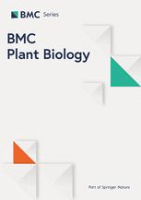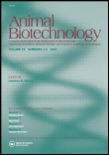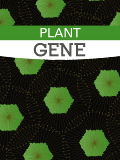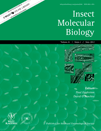
TRANSGENIC RESEARCH
metrics 2024
Catalyzing Breakthroughs in Agronomy and Animal Science
Introduction
TRANSGENIC RESEARCH, an esteemed academic journal published by Springer, has been at the forefront of the fields of agronomy, animal science, and biotechnology since its inception in 1991. With an ISSN of 0962-8819 and an E-ISSN of 1573-9368, this journal is pivotal in disseminating cutting-edge research and innovative methodologies that pave the way for advancements in genetic engineering and transgenic technology. Ranked in the Q2 category for Agronomy and Crop Science, Animal Science and Zoology, and Biotechnology, and within the top 90th percentile in Scopus for several related categories, TRANSGENIC RESEARCH maintains a prominent position in the global scientific community. This journal serves as a vital resource for researchers, professionals, and students, providing a platform for papers that explore both fundamental and applied aspects of transgenic research, ultimately contributing to sustainable agricultural practices and environmental stewardship. The journal’s commitment to fostering dialogue and collaboration among experts makes it an essential read for anyone interested in pushing the boundaries of genetic research.
Metrics 2024
 0.52
0.52 2.70
2.70 2.40
2.40 95
95Metrics History
Rank 2024
Scopus
IF (Web Of Science)
JCI (Web Of Science)
Quartile History
Similar Journals

3 Biotech
Pioneering Research in Agricultural and Environmental Sciences.3 Biotech is a prestigious interdisciplinary journal, published by SPRINGER HEIDELBERG, focusing on the evolving fields of biotechnology, agricultural and biological sciences, and environmental science. With an impressive impact factor and categorized in Q2 across multiple fields in the 2023 rankings, this journal stands out for its contribution to innovative research and its commitment to advancing scientific understanding. Featuring rigorous peer-reviewed articles, it serves as a vital resource for researchers, professionals, and students alike, further enhanced by its significant presence in Scopus rankings. This journal facilitates open discussions and collaborative efforts, aiming to bridge the gap between theoretical research and practical applications in biotechnology. As it continues to publish impactful studies from 2011 to 2024, 3 Biotech is dedicated to shaping the future of biosciences and fostering meaningful scientific advancements.

JOURNAL OF PLANT BIOCHEMISTRY AND BIOTECHNOLOGY
Cultivating Knowledge in Plant Biochemistry and BiotechnologyJOURNAL OF PLANT BIOCHEMISTRY AND BIOTECHNOLOGY, published by SPRINGER INDIA, is a leading publication dedicated to advancing research in the fields of plant biochemistry, biotechnology, agronomy, and crop science. With an ISSN of 0971-7811 and E-ISSN 0974-1275, the journal encompasses a wide range of studies aimed at enhancing our understanding of plant biological processes and their applications in agriculture and biotechnology. It has achieved a noteworthy Q2 ranking in Agronomy and Crop Science and Plant Science, as well as a Q3 ranking in Biotechnology, reflecting its quality and relevance in contemporary research. Notably, the journal ranks #166 in Plant Science and #133 in Agronomy, both falling in the top 67th percentile. With a rich history spanning from 1992 to 2024, the journal is committed to providing open access to innovative research findings that bridge the gap between laboratory discoveries and their practical applications in sustainable agriculture. Researchers, professionals, and students will find a wealth of knowledge and inspiration to advance their work in the dynamic field of plant sciences at this esteemed journal.

CURRENT ISSUES IN MOLECULAR BIOLOGY
Unraveling the Complexities of Life at the Molecular LevelCURRENT ISSUES IN MOLECULAR BIOLOGY, published by MDPI, serves as an essential forum for researchers and professionals in the rapidly evolving field of molecular biology. Established in 1999 and operating under an Open Access model, this journal not only shares high-quality research but also encourages a vibrant exchange of ideas across various disciplines, including medicine and microbiology. With an impressive trajectory leading into 2024, it has earned its place in the Q2 quartile for both Medicine (miscellaneous) and Microbiology, emphasizing its relevance and impact in these areas. The journal’s commitment to disseminating cutting-edge findings is reflected in its diverse coverage of topics, from molecular genetics to microbial interactions. Operating from its home base in Basel, Switzerland, CURRENT ISSUES IN MOLECULAR BIOLOGY is positioned to contribute significantly to the academic landscape, making it indispensable for those seeking to advance their understanding and research within the life sciences.

ACS Agricultural Science & Technology
Advancing Sustainable Solutions for Global Food SecurityACS Agricultural Science & Technology, published by the American Chemical Society, is an influential journal dedicated to the advancement of agricultural research and technologies. Since its convergence in 2021 and continuous publication until 2024, the journal has established itself in the fields of Agricultural and Biological Sciences, Agronomy and Crop Science, Food Science, and Plant Science, having achieved a commendable Q2 ranking across these categories in 2023. This signifies its growing impact and relevance within the global research community, evidenced by its Scopus rankings, which place it in the top percentiles of its fields. Although currently not an open-access journal, it provides a critical platform for disseminating pioneering research that addresses pressing agricultural challenges, fostering innovation in crop production, food security, and sustainable practices. As such, it serves as an essential resource for researchers, professionals, and students aiming to contribute to the future of agricultural science.

BMC PLANT BIOLOGY
Cultivating Insights in Plant ScienceBMC Plant Biology, published by BMC, is a leading open-access journal devoted to the field of plant science, presenting high-quality research that contributes significantly to the understanding of plant biology. Since its inception in 2001, the journal has established itself as a prominent platform for disseminating innovative research, achieving a commendable Q1 ranking in Plant Science within the 2023 Scopus quartiles, and ranking #39 out of 516 journals in the Agricultural and Biological Sciences category, indicating its substantial impact with a 92nd percentile ranking. Researchers, professionals, and students engaged in the study of plant biology will find a wealth of knowledge in its comprehensive scope, covering critical areas such as molecular biology, genetics, ecology, and biotechnology. The journal's commitment to open access ensures that cutting-edge research is available to a global audience, fostering collaboration and advancement in the field. BMC Plant Biology continues to inspire and facilitate growth in plant-related studies, making it an invaluable resource for anyone interested in the vibrant and essential domain of plant science.

Horticultural Plant Journal
Elevating Standards in Plant Science and SustainabilityThe Horticultural Plant Journal, published by KEAI PUBLISHING LTD, stands at the forefront of horticultural research and innovation. With an ISSN of 2095-9885 and an E-ISSN of 2468-0141, this open access journal has been committed to disseminating significant findings in horticulture since 2015. As of 2023, it proudly holds prestigious Q1 rankings across multiple categories, including Biochemistry, Genetics and Molecular Biology, Ecology, and Plant Science, reflecting its impactful contributions to diverse scientific fields. Located in Beijing, China, the journal not only facilitates groundbreaking studies but also provides crucial insights into sustainability and environmental issues, being ranked in the top tiers of relevant disciplines. This makes it an invaluable resource for researchers, professionals, and students who aim to stay at the cutting edge of horticultural science, offering them the latest research that informs both academic understanding and practical application.

Applied Biological Chemistry
Pioneering Open Access Research for a Global Audience.Applied Biological Chemistry, published by SPRINGER SINGAPORE PTE LTD, is a premier open access journal that has been serving the biological sciences community since 2016. With an ISSN of 2468-0834 and E-ISSN of 2468-0842, this journal is committed to disseminating high-quality research in the fields of Biochemistry, Genetics, Molecular Biology, and Organic Chemistry. The journal holds a commendable position within the scientific community, ranking in the Q2 quartile for both Biochemistry and Organic Chemistry niches as of 2023. It aims to foster innovative research and facilitate discussions that propel the understanding of complex biochemical processes and molecular techniques. By providing open access to its contents, Applied Biological Chemistry ensures that valuable research is readily available to researchers, professionals, and students globally, encouraging collaboration and knowledge sharing in this rapidly evolving discipline. Its pivotal role in enhancing scientific communication in the Netherlands and beyond is further underscored by a steadily increasing impact in the academic arena.

ANIMAL BIOTECHNOLOGY
Unlocking the Potential of Biotechnology in Animal HealthANIMAL BIOTECHNOLOGY is a premier journal published by Taylor & Francis Inc, dedicated to fostering innovative research in the field of animal biotechnology. With an ISSN of 1049-5398 and an E-ISSN of 1532-2378, this journal has established itself as a significant platform for scholars and professionals looking to advance their understanding of biotechnological applications in animal science. Since its inception in 1990, ANIMAL BIOTECHNOLOGY has garnered attention, currently ranking in the Q2 category for Animal Science and Zoology and Q3 in both Bioengineering and Biotechnology, reflecting its valuable contributions to these evolving fields. Researchers looking to publish their work can benefit from the journal's esteemed reputation, further emphasized by its Scopus rankings, which place it in the top tiers of relevant categories. While the journal does not currently offer open access, its essential body of knowledge serves as a crucial resource for anyone involved in animal biotechnological research, including academics, industry professionals, and students aiming to deepen their expertise and drive innovation within this exciting domain.

Plant Gene
Advancing the Frontiers of Plant GeneticsPlant Gene is an esteemed academic journal dedicated to the comprehensive study of plant genetics, genomics, and biotechnology. Published by Elsevier, this journal operates from its base in the Netherlands and has made significant strides since its inception in 2015, with a converged year span extending until 2024. As an integral resource in the field, Plant Gene is categorized in the Q2 quartile for Plant Science and Q3 for Biochemistry, Biotechnology, and Genetics as per the 2023 evaluations, reflecting its growing influence and quality of research. With an impactful presence in Scopus rankings—positioned at #145 in Plant Science—this journal serves as a platform for presenting innovative findings and advancing knowledge in plant science. Researchers, professionals, and students will find access to cutting-edge research articles that not only drive the scientific community forward but also offer invaluable insights into the genetic mechanisms underpinning plant development and resilience. While the journal currently operates under a subscription-based model, it aims to broaden accessibility and foster a diverse range of scholarly discussions in the ever-evolving field of plant genetics.

INSECT MOLECULAR BIOLOGY
Decoding Insect Biology Through Molecular InsightsInsect Molecular Biology, published by Wiley, is a leading journal dedicated to advancing the field of insect biology through molecular perspectives. With a prominent ISSN of 0962-1075 and an E-ISSN of 1365-2583, this journal has gained a significant reputation since its inception in 1992, showcasing a diverse array of research that spans across genetics, molecular biology, and specific aspects of insect science. As of 2023, it has achieved a remarkable categorization, recognized as Q1 in Insect Science and Q3 in Genetics and Molecular Biology, underscoring its pivotal role in fostering academic discourse at the intersection of biology and technology. The journal is indexed in esteemed databases with strong rankings, sitting at the 82nd percentile in Insect Science, which highlights the impactful research it publishes. While it currently does not offer open access, Insect Molecular Biology remains an essential resource for researchers, students, and professionals eager to explore the complexities of insect life at the molecular level. By disseminating innovative findings and methodologies, the journal significantly contributes to both theoretical and applied entomological research, making it a cornerstone for anyone passionate about the intricate world of insects.